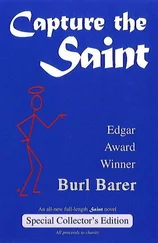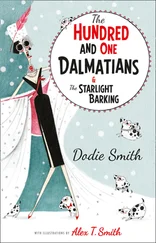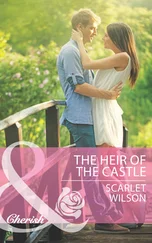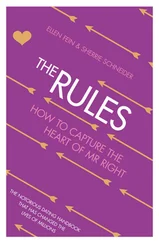Dodie Smith - I Capture the Castle
Здесь есть возможность читать онлайн «Dodie Smith - I Capture the Castle» весь текст электронной книги совершенно бесплатно (целиком полную версию без сокращений). В некоторых случаях можно слушать аудио, скачать через торрент в формате fb2 и присутствует краткое содержание. Жанр: Старинная литература, на русском языке. Описание произведения, (предисловие) а так же отзывы посетителей доступны на портале библиотеки ЛибКат.
- Название:I Capture the Castle
- Автор:
- Жанр:
- Год:неизвестен
- ISBN:нет данных
- Рейтинг книги:4 / 5. Голосов: 1
-
Избранное:Добавить в избранное
- Отзывы:
-
Ваша оценка:
- 80
- 1
- 2
- 3
- 4
- 5
I Capture the Castle: краткое содержание, описание и аннотация
Предлагаем к чтению аннотацию, описание, краткое содержание или предисловие (зависит от того, что написал сам автор книги «I Capture the Castle»). Если вы не нашли необходимую информацию о книге — напишите в комментариях, мы постараемся отыскать её.
I Capture the Castle — читать онлайн бесплатно полную книгу (весь текст) целиком
Ниже представлен текст книги, разбитый по страницам. Система сохранения места последней прочитанной страницы, позволяет с удобством читать онлайн бесплатно книгу «I Capture the Castle», без необходимости каждый раз заново искать на чём Вы остановились. Поставьте закладку, и сможете в любой момент перейти на страницу, на которой закончили чтение.
Интервал:
Закладка:
The fire died quickly, soon there was nothing but gray smoke drifting in the gray dusk. I asked Simon if we were seeing by the last of the
daylight or the first of the moonlight- and really it was hard to tell.
Then gradually the moonlight won and the mist shrouding the castle
turned silver.
"Could anyone paint that?" said Simon.
"Debussy could have done it in music. Are you fond of him ?"
I had to admit that I'd never heard a note of Debussy.
"Oh, surely you must have. Not on records or the radio?"
When I told him we had neither a gramophone nor a wireless he looked
staggered- I suppose Americans find it hard to believe there is anyone in the world without such things.
He told me they had a new machine at Scoatney that changed its own
records- I thought he was joking till he began to explain how it
worked. He finished by saying: "But why don't I drive you over to hear it now his We'll have some supper."
"But you said you were full of dinner," I reminded him.
"Well, I'll talk to you while you eat. And Heloise can have a bone in the kitchen. Look at her trying to rub the dew off her nose with her
paws! Come on, this grass is getting very damp." He pulled me to my feet.
I was glad to accept because I was fabulously hungry. Simon stamped
out the dying embers while I went up to close the door of the tower. I stood at the top of the steps for a moment, trying to capture the
feelings I usually have on Midsummer Eve--for I had been too occupied in entertaining Simon to think about them before. And suddenly I knew that I had been right in fearing this might be my last year for the
rites--that if I ever held them again I should be "playing with the children:" I only felt the smallest pang of sadness, because the glory of supper at Scoatney was stretching ahead of me; but I said to myself that, Simon or no Simon, I was going to give the farewell calla
farewell for ever this time, not just for a year. The call is a queer wordless cry made up of all the vowel sounds--it was thrilling when
Rose and I used to make it together, but I do it fairly well by
myself.
"Ayieou!" I called-and it echoed back from the castle walls as I knew it would. Then Heloise raised her head and howled- and that echoed,
too. Simon was fascinated; he said it was the best moment of the
rites.
Walking down Belmotte was the oddest sensation--every step took us
deeper into the mist until at last it closed over our heads. It was
like being drowned in the ghost of water.
"You'd better get a coat," said Simon as we crossed the bridge to the courtyard, "because the car's open. I'll wait for you in it."
I ran upstairs to wash my hands; they were dirty from handling the
wood. And I put some of the "Midsummer Eve" scent on my dress and handkerchief--it seemed just right for a supper party.
My garland was still fresh so I wore it outside my coat, but as I
hurried downstairs I decided it might look affected and it would
certainly be longing for a drink; so I dropped it into the moat as I
crossed the drawbridge.
It wasn't the usual Scoatney car but a new one, very long and low--so low that one feels one is going to bump one's behind on the road.
"I think it's a bit too spectacular," said Simon, "but Rose lost her heart to it."
The night was beautifully clear once we were well away from the castle-we looked back at it from the high part of the Godsend road and could only see a little hill of mist rising from the moonlit wheat fields.
"If you ask me, it's bewitched," said Simon.
"Maybe when I bring you back we shall find it's gone for keeps." The new car was fascinating to drive in. Our eyes were on a level with the steep banks below the hedges and every spear of grass stood out
brilliantly green in the headlights, seeming more alive than even in
the brightest sunshine. We had to go very slowly because of rabbits-
Heloise kept trying to go headfirst through the windscreen after them.
One poor creature ran in front of us for such a long time that Simon
finally stopped the car and turned the headlights off, so that it could summon up the strength of mind to dive into a ditch. While we waited
he lit a cigarette, and then we leaned back looking up at the stars and talking about astronomy, and space going on for ever and ever and how very worrying that is.
"And of course there's eternity," I began- then Godsend church struck ten and Simon said we must make up for lost time.
There were very few lights on at Scoatney -- I suddenly wondered if all the servants would be in bed; but the butler came out to meet us. How extraordinary it must be to be able to tell a large, imposing man
"Just bring a tray of supper for Miss Mortmain to the pavilion, will you ?"-without even apologizing for giving trouble so late at night- I apologized myself, and the butler said:
"Not at all, miss," but rather distantly. As he stalked away after Heloise (she knows her way to the kitchen now) it struck me that he
would soon be Rose's butler. I wondered if she would ever get used to him.
We crossed the dim hall and went out at the back of the house.
"Here are your herbs by moonlight," said Simon, "and did you notice how carefully I put my aitch in?"
He led the way through the rather dull little herb-garden- the idea of herbs is so much more exciting than the look of them--into the
water-garden, and turned on the fountains in the middle of the big oval pool.
We sat on a stone bench watching them for a few minutes, then went into the pavilion. Simon only lit one candle- I'll put it out when I start the phonograph," he said.
"Then you can still see the fountains while you listen to Debussy--they go well together."
I sat down by one of the three tall, arched windows and peered around; I hadn't been in the pavilion since it had been turned into a music
room. A large grand piano had arrived as well as the wonderful
gramophone, and dozens of albums of records were arranged on the
shelves of two painted cupboards. Simon walked along with the candle, looking for the Debussy albums.
"I suppose we ought to start you right at the beginning," he said, "but I don't believe we have anything from "The Children's Corner."
I'll try "Clair de Lune" on you- and I bet you'll find you know it."
He was right--as soon as it began I remembered; a girl once played it at a school concert. It is beautiful-and the gramophone was amazing,
it might have been someone really playing the piano, only much better than I ever heard a piano played. Then the record changed all by
itself--Simon called me away from the window to watch it, and told me about the next piece, "La Cathedrale Engloutie." You hear the drowned cathedral rise with its bells ringing, then sink into the sea again.
"Now you know why I said Debussy could have composed the castle in the mist," Simon told me.
The third record was "La Terrasse des Audiences au Clair de Lune." It was wonderful to watch the fountains while I listened to it --there
were fountains in the music, too.
"Well, Debussy's certainly made a hit with you," said Simon, "though I'm not sure you wouldn't outgrow him. You're the kind of child who
might develop a passion for Bach."
I told him I hadn't at school. The one Bach piece I learnt made me
feel I was being repeatedly hit on the head with a teaspoon. But I
never got very far with my music--the money for lessons ran out when I was twelve.
"I'll find you some Bach that you'll like," said Simon. He lit the candle again and began to hunt through a big album. The gramophone had stopped playing. I went over to the cupboards and looked at the backs of the albums--even to read the names of the composers was exciting.
Читать дальшеИнтервал:
Закладка:
Похожие книги на «I Capture the Castle»
Представляем Вашему вниманию похожие книги на «I Capture the Castle» списком для выбора. Мы отобрали схожую по названию и смыслу литературу в надежде предоставить читателям больше вариантов отыскать новые, интересные, ещё непрочитанные произведения.
Обсуждение, отзывы о книге «I Capture the Castle» и просто собственные мнения читателей. Оставьте ваши комментарии, напишите, что Вы думаете о произведении, его смысле или главных героях. Укажите что конкретно понравилось, а что нет, и почему Вы так считаете.












